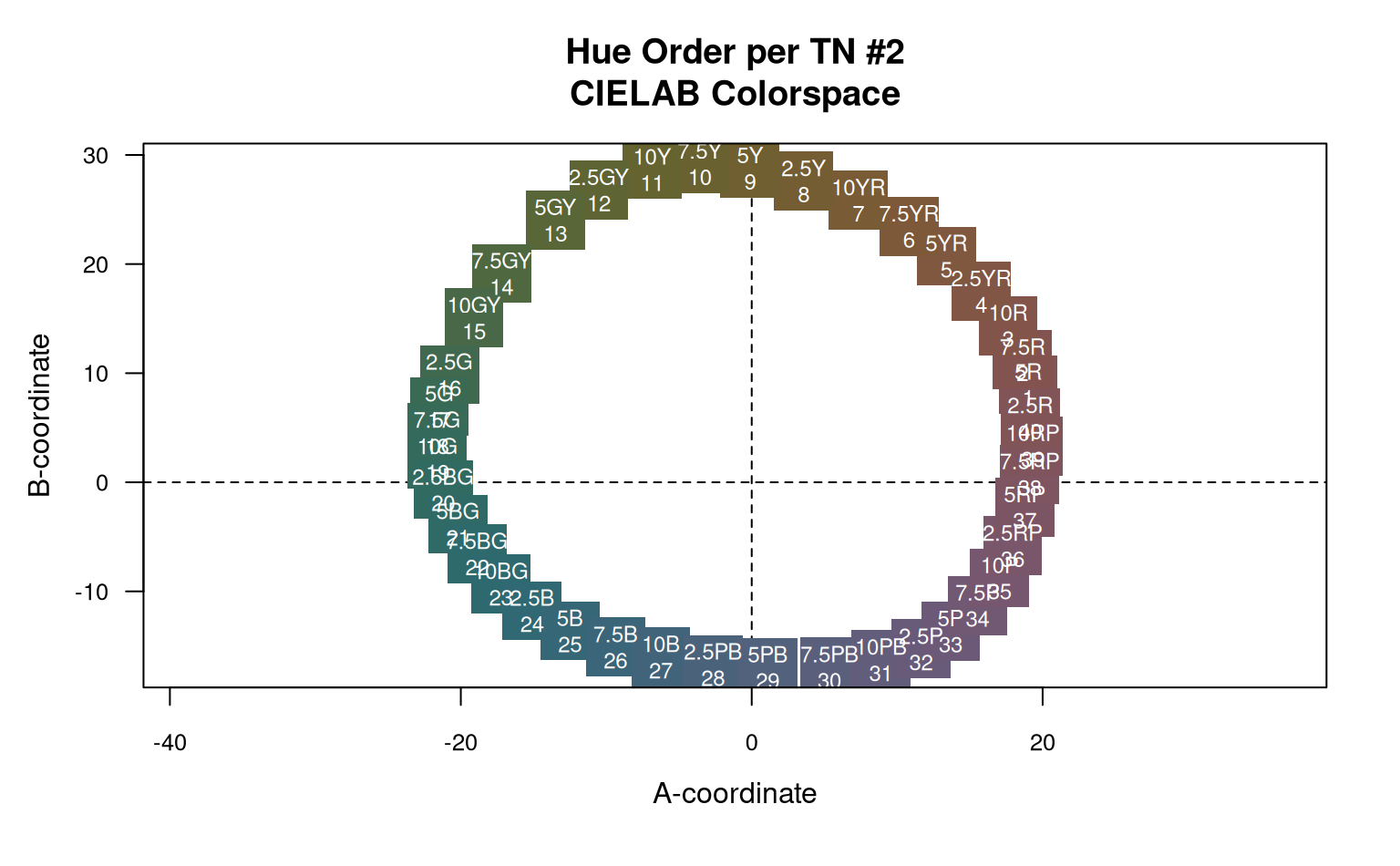A simple visualization of the hue positions for a given Munsell value/chroma according to Soil Survey Technical Note 2.
huePositionPlot(
value = 6,
chroma = 6,
chip.cex = 4.5,
label.cex = 0.75,
contour.dE00 = FALSE,
origin = NULL,
origin.cex = 0.75,
grid.res = 2,
...
)Arguments
- value
a single Munsell value
- chroma
a single Munsell chroma
- chip.cex
scaling for color chip rectangle
- label.cex
scaling for color chip
- contour.dE00
logical, add dE00 contours from
origin, imlpicitlyTRUEwhenoriginis notNULL- origin
point used for distance comparisons can be either single row matrix of CIELAB coordinates, a character vector specifying a Munsell color. By default (
NULL) represents CIELAB coordinates (L,0,0), where L is a constant value determined byvalueandchroma. See examples.- origin.cex
scaling for origin point
- grid.res
grid resolution for contours, units are CIELAB A/B coordinates. Caution, small values result in many pair-wise distances which could take a very long time.
- ...
additional arguments to
contour()
Value
nothing, function is called to generate graphical output
Examples
# \donttest{
# adjust Munsell value and chroma for all hues
huePositionPlot(value = 4, chroma = 4)
 # huePositionPlot(value = 6, chroma = 6)
# huePositionPlot(value = 8, chroma = 8)
## contour dE00 values from CIELBA (A,B) origin
# huePositionPlot(value = 6, chroma = 6, contour.dE00 = TRUE, grid.res = 2)
## shift origin to arbitrary CIELAB coordinates or Munsell color
# huePositionPlot(origin = cbind(40, 5, 15), origin.cex = 0.5)
# huePositionPlot(origin = '5G 6/4', origin.cex = 0.5)
# huePositionPlot(origin = '10YR 3/4', origin.cex = 0.5)
# huePositionPlot(value = 3, chroma = 4, origin = '10YR 3/4', origin.cex = 0.5)
# }
# huePositionPlot(value = 6, chroma = 6)
# huePositionPlot(value = 8, chroma = 8)
## contour dE00 values from CIELBA (A,B) origin
# huePositionPlot(value = 6, chroma = 6, contour.dE00 = TRUE, grid.res = 2)
## shift origin to arbitrary CIELAB coordinates or Munsell color
# huePositionPlot(origin = cbind(40, 5, 15), origin.cex = 0.5)
# huePositionPlot(origin = '5G 6/4', origin.cex = 0.5)
# huePositionPlot(origin = '10YR 3/4', origin.cex = 0.5)
# huePositionPlot(value = 3, chroma = 4, origin = '10YR 3/4', origin.cex = 0.5)
# }